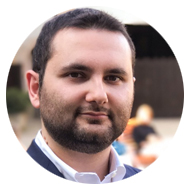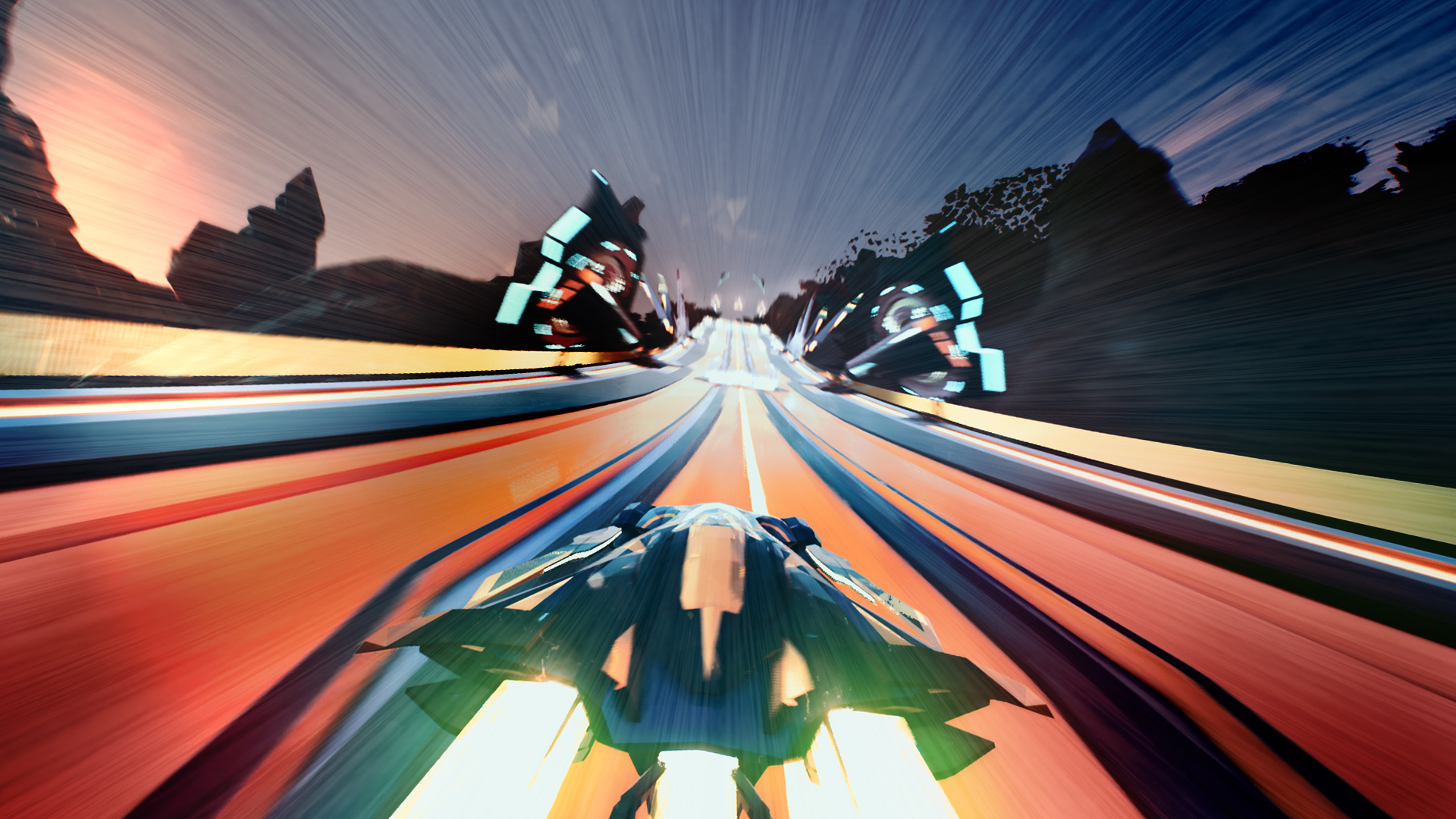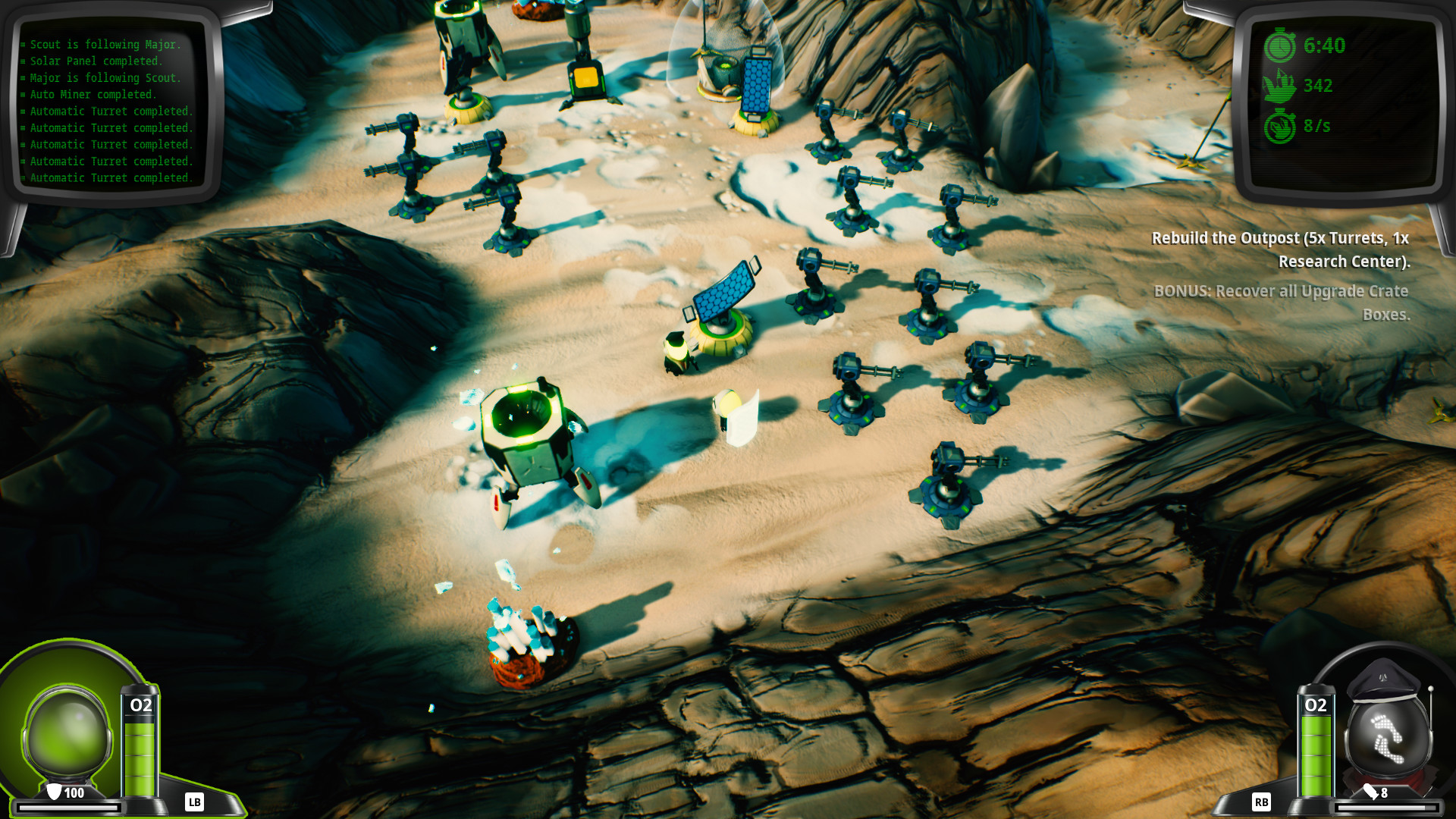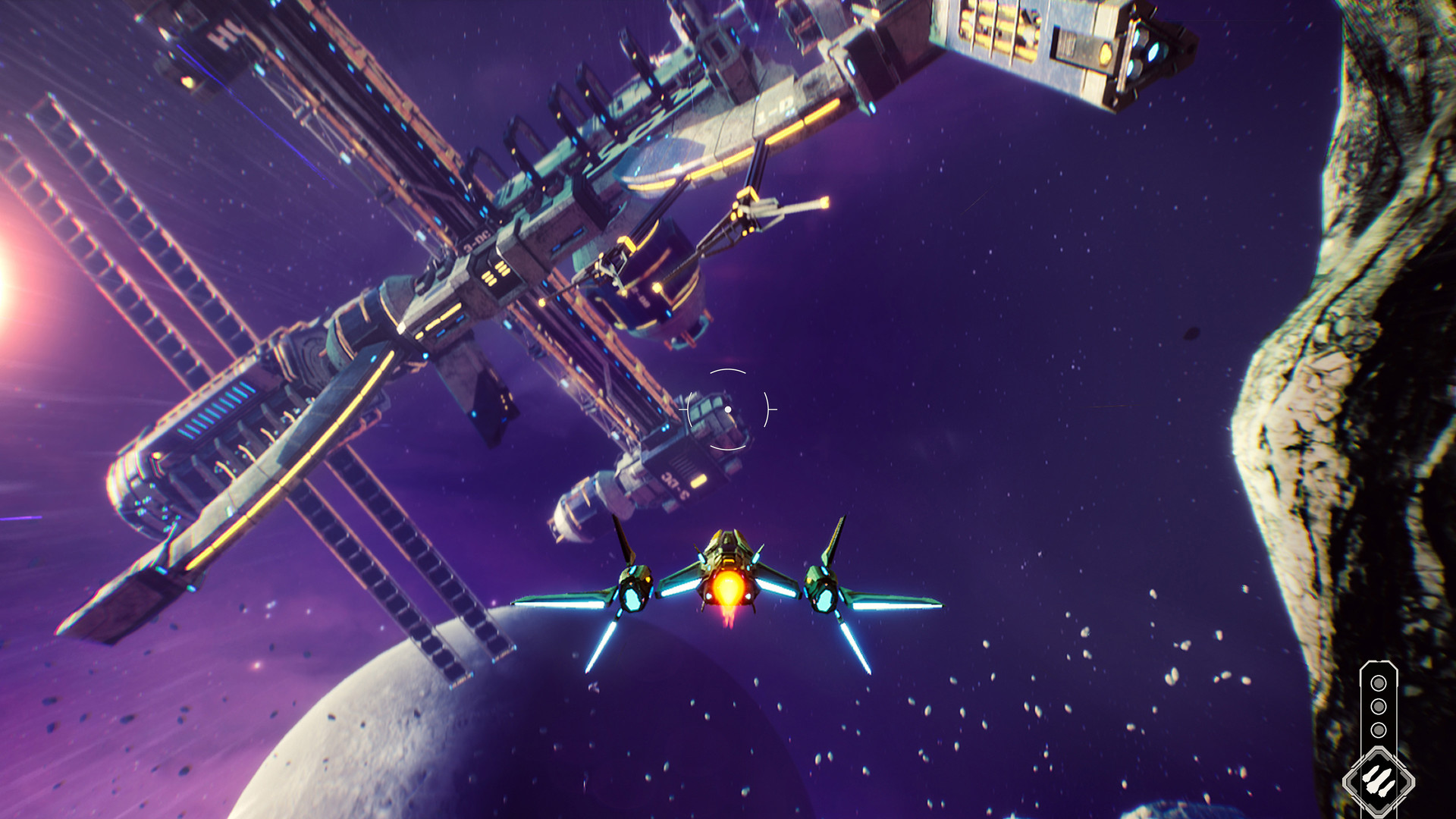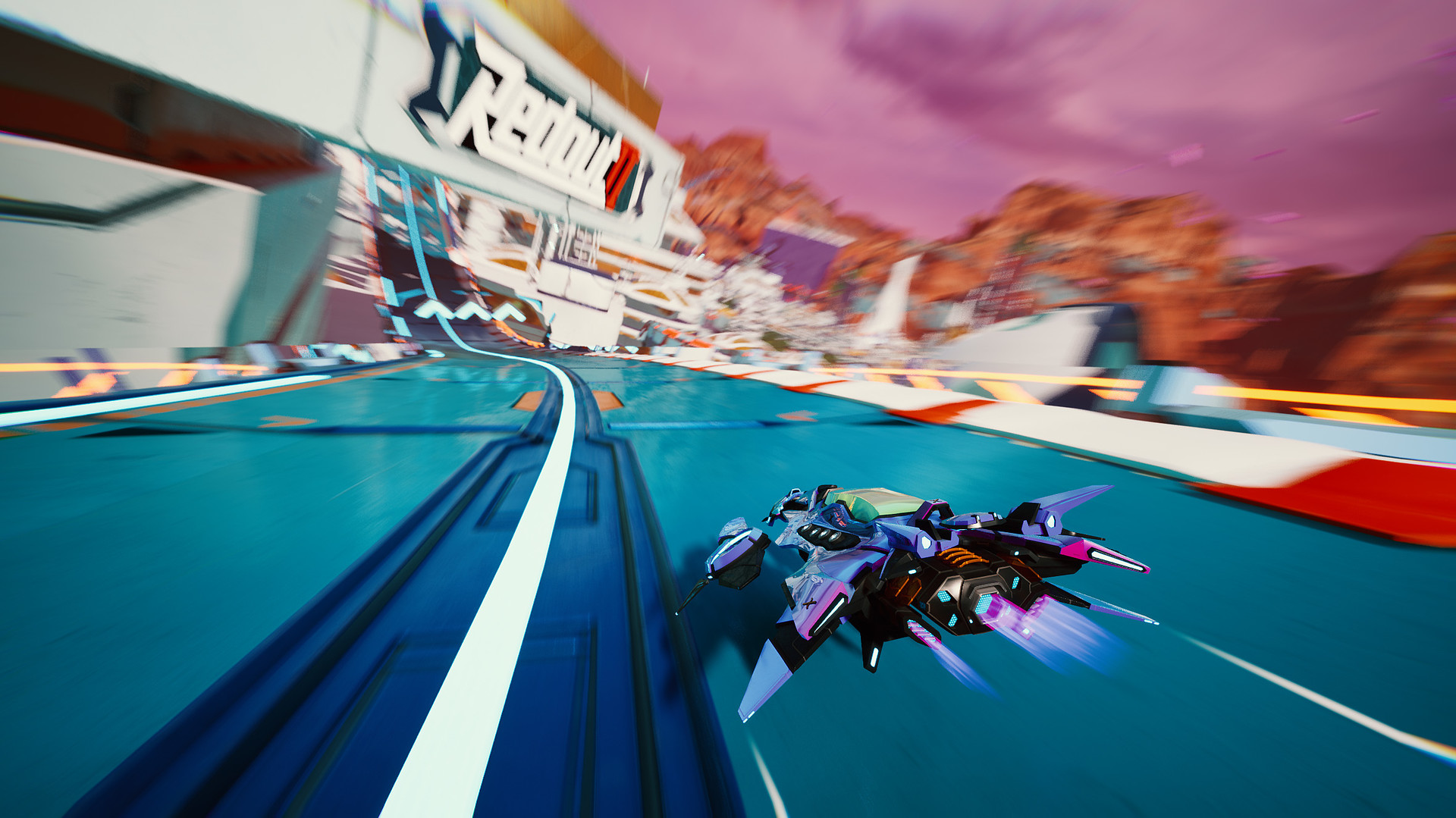34BigThings’ Valerio Di Donato on how a year under Saber has treated the studio
In November 2020, Embracer Group acquired a 100 percent stake in Turin, Italy-based 34BigThings through its subsidiary Saber Interactive. We caught up with Valerio Di Donato, CEO at 34BigThings, to discuss how, if at all, the acquisition by the corporate giant has changed the studio that has always prided itself on the freedom to be “superweird.”
Valerio Di Donato
CEO at 34BigThings
Oleg Nesterenko, managing editor at GWO: Valerio, would you please tell us about the acquisition. Who approached who?
In 2020, we were in a pretty good state as a company. We were making games we liked. As naïve as it sounds, that has been our philosophy since 2013, when we were just three people in an apartment. Since then, we grew up a lot, we launched the Redout narrative universe and expanded it with Space Assault, which is a prequel to the original Redout. We co-produced Space Assault with Apple and launched on Apple Arcade. We did so many things that we hadn’t done before, and at some point Saber emailed us and said they were interested in what we were doing. “You clearly know how to make games and how to do business,” they said. “So maybe we can talk publishing for your next game and stuff…”
“We would like to be acquired,” we said. That was literally my answer. We didn’t expressly want to sell, but I wanted to discuss the acquisition because the emotional cost of running a business in the video games industry, and especially in Italy, is insane. At least it was for me. As an entrepreneur, I always felt lonely to some extent. Sure, there are people I still work with I can trust, but when it came to taking entrepreneurial risks, I was alone in my decisions.
Saber said they could take away some of that emotional stress, provide additional funding and get us some deals and technology that we couldn’t get on our own as an indie. And they have people that have like 20 times the experience I have to handle stuff.
So, we had a few calls, and we really loved that they were super honest, super transparent, even with negative feedback, which is critical to our job.
Did you meet in person?
We’ve never met up to this day. We only discuss everything via Google Meet or Zoom.
What about the undisclosed sum that was paid by Saber as part of the deal? Where did this money go?
It mostly went to the founders because it’s like payback for the risks you took as an entrepreneur. But of course, we tried to be as generous as possible to all the employees who made us who we are today and are still with us.
You said, though, that Saber is also providing additional funding for the studio?
We’re self-sustained, so the business runs on the money generated from our products. But some funding now comes from Saber because we need more people to build better and bigger games.
Redout (2016)
How much did you grow post-acquisition?
We grew from around 30 to 60 people.
And you are not stopping there?
I don’t have a specific number of employees in mind. I still want to be comfortable with our headcount. So I don’t want to say 3000 people because that’s not the company I would like to build. Not right now, at least. But at the same time, I also know where the expectations of the team are in terms of what we want to achieve. And for that, I know we need more people, so I will say that we’ll try to go up to 70-80 this year. And then, we’ll see next year.
Other than the headcount, what has changed for 34BigThings since the deal with Saber?
First and foremost, our strategy has changed.
Up to Space Assault, we had always worked on one big game that takes years to develop. In the meantime, we tried to do small experiments to play around with marketing ideas, with positioning, with the smaller stuff. We made Mars or Die and Super Inefficient Golf in this way. We made a bunch of casual mobile games. We did a lot of smaller stuff to iterate on anything that we weren’t super happy with.
Now the strategy is to focus on bigger projects that take much longer. As for small marketing experiments to test specific markets, we no longer have to do them because we have Saber for that.
And if there is anything we want to experiment on in terms of game design, there is the pre-production phase where we play around with anything that is edgy and novel.
So that’s where we are strategy-wise. In addition to that, our processes have changed. They have become more structured.
For instance, we have two producers now.
Mars or Die! (2018)
Because you have two games in your pipeline?
Yes, but the number of producers is not directly related to the number of projects. Previously, we used to have a lot more games simultaneously in production and zero producers.
We didn’t have producers until very late into the production of Redout 2. That’s because we always try to give as much responsibility and ownership as possible to every single person in terms of what we are building. That’s typical when you are indie.
Even now, we strive for the same things, but we have to manage a team that is 60 people strong, and that’s why we need producers now. So it’s not about the number of projects per se. It’s more about the size of the studio.
Would you say producers need to have a very good grip on what teams are doing exactly? Or are they just in touch with team leads?
We try to know as much as possible. We have weekly meetings and weekly notes about what every single person is doing. We use all the task management and project management tools you can imagine to have visibility on what’s going on within teams. But the responsibility of producers is to have a clear overview on the bigger tasks and the progress towards our milestones. So leads have a bit more control in terms of what every single person is doing within a team, what their specialty is, and how to focus their energy in the best possible way. Producers, on the other hand, manage connections between different teams, coordinate the right timing and the right consequences.
So it’s all a bit more structured. We also try to document everything a lot more.
What about your own routine? Has it changed over the last year?
Yes, but my routine changes all the time. I try to experiment as much as possible with what I think is not working the way I want.
Other than that, there have been a lot more meetings because there are a lot more people inside the company and because we are doing so many things. I’m trying to be at least a little bit less involved in production now because we have two producers. A lot of what I do now is related to hiring and managing all the processes as they evolve.
Are you happy where you are, more detached from the actual process of making games but more involved with people?
I am. I still try to stay connected to the game. Not as much as before, sure. For Redout One, I was the game director, I did all the prototypes, I built the AI.
For Redout 2, I can’t be so hands-on with the production and direction, but I did retain a bit of control over some aspects of the game. For example, one of the environments in Redout 2 was made following my creative direction. In general, though, our creative director is responsible for 97 percent of the direction of the game.
As CEO, can you still decide on any potential deals yourself, or do you have to agree all important decisions with Saber?
It’s a combination of those. We are independent in terms of what we do as a company. But Saber is publishing our next game. And like in any other publisher-developer relationship, we discuss opportunities and decide together what to do in a way that makes both of us happy.
Redout: Space Assault (2021)
[While we speak, a dog starts barking in the background — Ed.]
Is this a dog?
Yeah, it’s a dog. It belongs to one of our employees. You can bring dogs to the office. We usually have two of them. They’re noisy sometimes, but it’s always nice to just play with a dog when you want to relax after a long task.
Pet-friendly game development, very commendable! Valerio, when we talked a year ago at DStars Connects, you were concerned about a possible change in the studio culture due to the acquisition. Where are you with those concerns right now?
I’m still concerned. We haven’t yet got to the point where it’s completely fucked up or it’s completely fine. I’m still worried because a lot is changing, as you can imagine. I mean, when you have 30 people that basically grew up together for five years and then suddenly you have 20 people more, you just don’t have the same level of connection and trust with new team members. And COVID doesn’t help because we are not working in the same office and we just talk on Discord. At the same time, we only hire new people after careful selection and conversations with our leads. So our hiring pipeline helps a lot with building the level of trust. At least you are starting from level three instead of level zero, which is something.
So, I’m still concerned because we are still growing, but so far so good. I’m not super worried.
So, whatever challenges you’re facing in terms of culture, they are not because you’ve gone corporate? They are more of growth pains?
That’s 100% correct. Generally, companies fail in either their first year or when they’re scaling. We are in the second phase, but I would say we are doing definitely better than I was expecting.
Do you still consider yourself indie?
Yes, man! Both as a company and as people, we are still in many ways the same kind of rebels. We are still pretty free and playful in how we do things.
When 34BigThing was just three people and then five people, we didn’t even have a proper website. It was literally a page with the black text on a white background, which read, “We don’t want to spend time making a website, but this is our address. Feel free to drop by any time for coffee.” This attitude is 100 percent who we are. Just a bunch of purehearted indie developers that try to do everything in the most human way.
Well, you’ve certainly upgraded your website. Could you give an example of how that attitude is still there?
It’s in the small things. For example, we actually reply to everybody who writes to us. If you send us an application, we will reply, even if it’s completely out of touch with reality.
Or when we send you a test because you sent an application, the document we send will have your name in it. It’s a manual process, but we take the time and effort to personalize everything we do for the person we are talking to.
That’s super important because we are a company made up of people. So we try to be as human as possible. And if anybody pops by the office and says, “Hi, I know you guys make games, can I have a short tour around?” we will try to have a coffee with these people and be there for everybody.
And we are pretty flexible when it comes to time off or holidays. If you need time, it means you need time. You can take as much time as you need.
Redout 2 (release expected in 2022)
And you allow dogs in the office! One last question about culture. With indie studios, it’s often the case that each team member wears a lot of hats, and you can contribute ideas to any process even if it’s not your primary responsibility. Would you say that there is less of that creative craziness now, with marketing taken over by Saber, with each role within the studio better defined?
No, definitely not. The big marketing guns might actually be handled by Saber, but the positioning of the product, the aesthetic of it, how we present the game to the world is still on us. We can have a conversation with Saber about it, but we know the product much better than anybody else. So that’s still us 100 percent.
The same is true of the creative process. It is always a bit messy in terms of inputs and outputs. And we like it that way because it’s super important. You can build a standard game in terms of mechanics, but it’s the small choices, little things that make the game what it is. Take Super Mario and Celeste. They are both side-scrolling platformers, but how you jump, how you see the world, how you interact with it makes each of these titles special. And these kinds of things only arise when game designers, programmers, artists, and sound guys work together and complement each other.
And we still have that. During the pre-production phase, everybody can say anything to anyone in any department, suggest any feature because we like to experiment as much as possible. Later in the production process, we try to close the gates down a bit, but it really doesn’t happen. So anybody can still propose anything. We still believe it makes better games.
Lastly, to whatever extent possible, would you please tell us about the games that you are working on right now?
We announced Redout 2 in December, and it’s coming out this year, soon enough hopefully. That’s one of the big ones because we started playing around with the idea just after Redout. Redout turned out to represent 80 percent of the game we actually wanted to build. It’s always 80 percent, you never get 100 percent, it’s impossible. But Redout 2 is insanely big in terms of how many ships, customization options, environments there are. Everything is bigger and faster compared to Redout.
Is this thanks to the acquisition?
In terms of content, we would have probably landed in a similar position, but thanks to Saber, we gained extra months of production, so the quality of everything will be much higher.
And the other unannounced title?
It’s currently in pre-production, and it’s a game that resonates a lot with our DNA. It represents everything that got me into video games in the first place. That’s pretty much all I can say at the moment.
Ok. So 34BigThings is still very much the same company, but bigger.
Still a lot of fun, yes.
